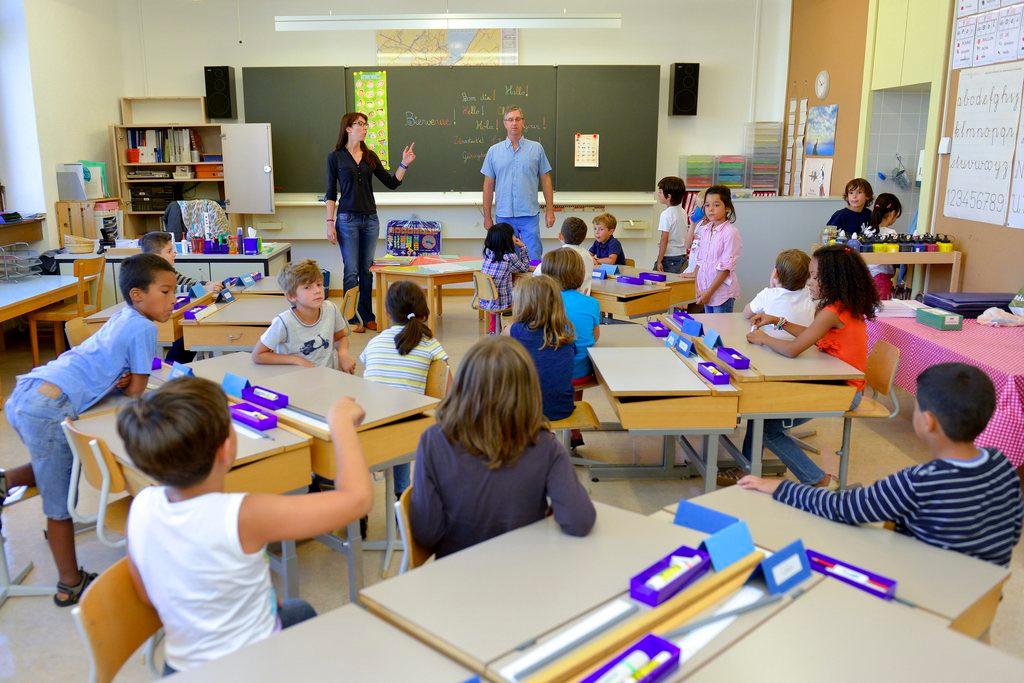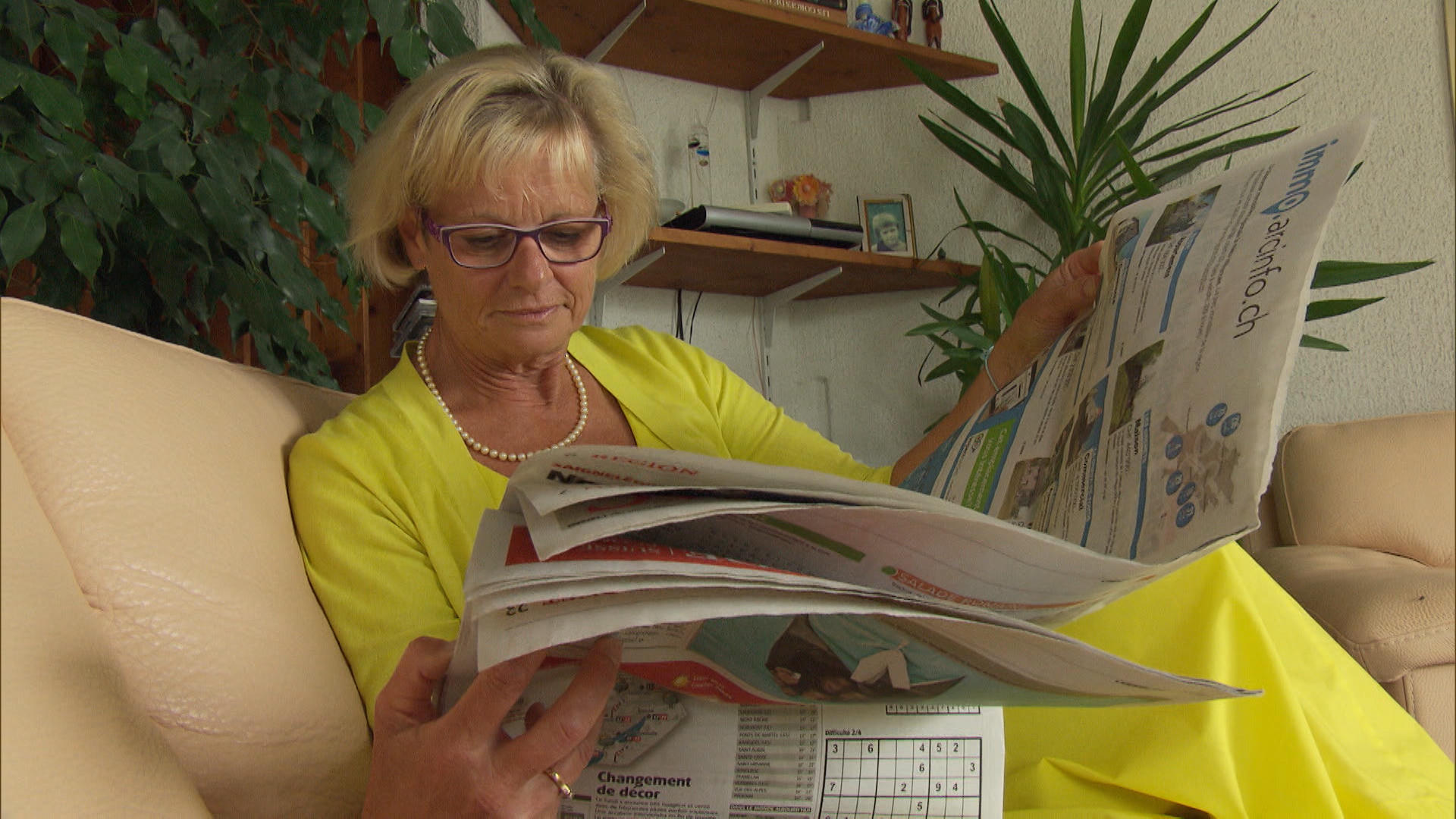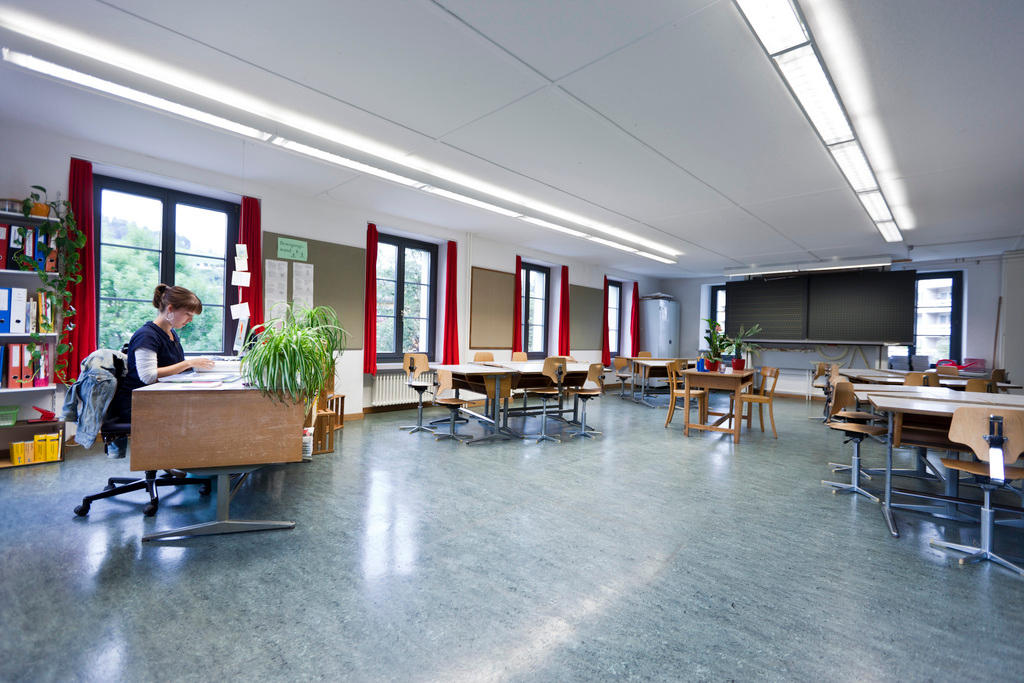Alarm sounded over burnout in teachers

Time pressure, endless admin and difficult pupils and parents – these are all reasons why teachers get burnout. The latest study from French-speaking Switzerland puts the figure at around 40% of teaching staff being at risk.
Teachers are calling for measures to protect their health in and out of the classroom.
This includes giving them enough resources, ensuring that schools are up to health standards and that teachers have access to support when needed. The proposals arise from a German-speaking Swiss Teachers’ UnionExternal link project launched in 2014. They will be published on Thursday at a meeting in Bern.
The health topic has been much discussed of late. In early August, just before schools went back after the summer holidays, the union’s counterpart in the French-speaking part of Switzerland, the SERExternal link, said the health of many teachers was deteriorating and this was putting their work quality at risk.
Struggling
“Most teachers are struggling to keep afloat,” said SER president Samuel Rohrbach at the press conference on August 9. Some are putting their health at risk to carry out their work and continuing to teach instead of getting help, he said.
A study commissioned by the SERExternal link of 5,500 teachers found that 40% were “in a burnout situation”. This does not mean however, that all 40% were suffering from the condition, Rohrbach explained swissinfo.ch.
He pointed to several key figures however to illustrate the situation: 40.8% of those surveyed reported that they found it difficult to switch off from the job and just over half felt they often, or very often, had to make an effort to cope. About 60% felt their health deteriorated as the school year went on.
This follows on from a 2014 Swiss-wide survey by the Swiss Teachers’ UnionExternal link which found that one in five teachers felt “constantly overburdened”.
The reasons for burnout can vary. Increasing work pressure on teaching staff, also from parents, can be one reason, as in the case below.

More
A teacher’s experience
Presenteeism was also mentioned by the 2014 study. Part-time workers – often juggling family or extra studies – and women were found to be particularly at risk in this survey.
Symptoms can be permanent tiredness, a lack of enthusiasm for the job, a feeling of no longer being in control. The case of LucioExternal link, a sports teacher in his mid 40s, highlighted by the Swiss Teachers’ Union, tells of how he stayed behind in the school building after a meeting to prepare for the beginning of term.
“I began to sweat, my sight became narrower. I was so overwhelmed that I couldn’t drive home and I stayed the whole night in the school. I used to do this a lot, but this was different. When it was morning I rang the headmaster and told him what was happening and that I was afraid of being in the school.”
Support
Lucio received support from the school and from his doctor. People affected can also turn to special school advice centres, which exist in most cantons in German-speaking Switzerland, for example, which can help with burnout, supporting the person towards an eventual re-entry into school life, perhaps starting part-time and with another school.
Many of those affected recover, but have to make changes to their lifestyle and approach to work, an expert in the field told swissinfo.ch. Perfectionists are more likely to be affected. Overall stress is increasing in society, with people in social professions with lots of human contact, like teachers and doctors, having a higher risk of burnout, the expert said.
Information is key. The earlier the symptoms can be spotted the more likely a crisis can be avoided.
The Swiss Teachers’ Union has long been calling for smaller classes and a reduction to 26 hours of classes per teacher, saying that such measures would avoid a 55-hour working week, taking into account preparation and other administrative duties.
Swiss Education Day
Teachers’ health is the subject of Swiss Education DayExternal link on Thursday, held every two years – this year in Bern, in which the Swiss Teachers’ UnionExternal link and the Swiss Union of French-speaking Teachers (SER)External link called for better health protection at schools at an institutional level.
A study presented on the day found that of the 70% of teachers working part-time, one third did so for health reasons. Apart from stress, working conditions such as the air and light quality were also factors. Another study put the costs of teachers going on sick leave attributed to work conditions was CH37.6 million ($39 million) a year, a statement said.External link
“Those who recognise the high value of education, must ensure that teachers remain healthy,” said Interior Minister Alain Berset at the event.

In compliance with the JTI standards
More: SWI swissinfo.ch certified by the Journalism Trust Initiative











You can find an overview of ongoing debates with our journalists here . Please join us!
If you want to start a conversation about a topic raised in this article or want to report factual errors, email us at english@swissinfo.ch.